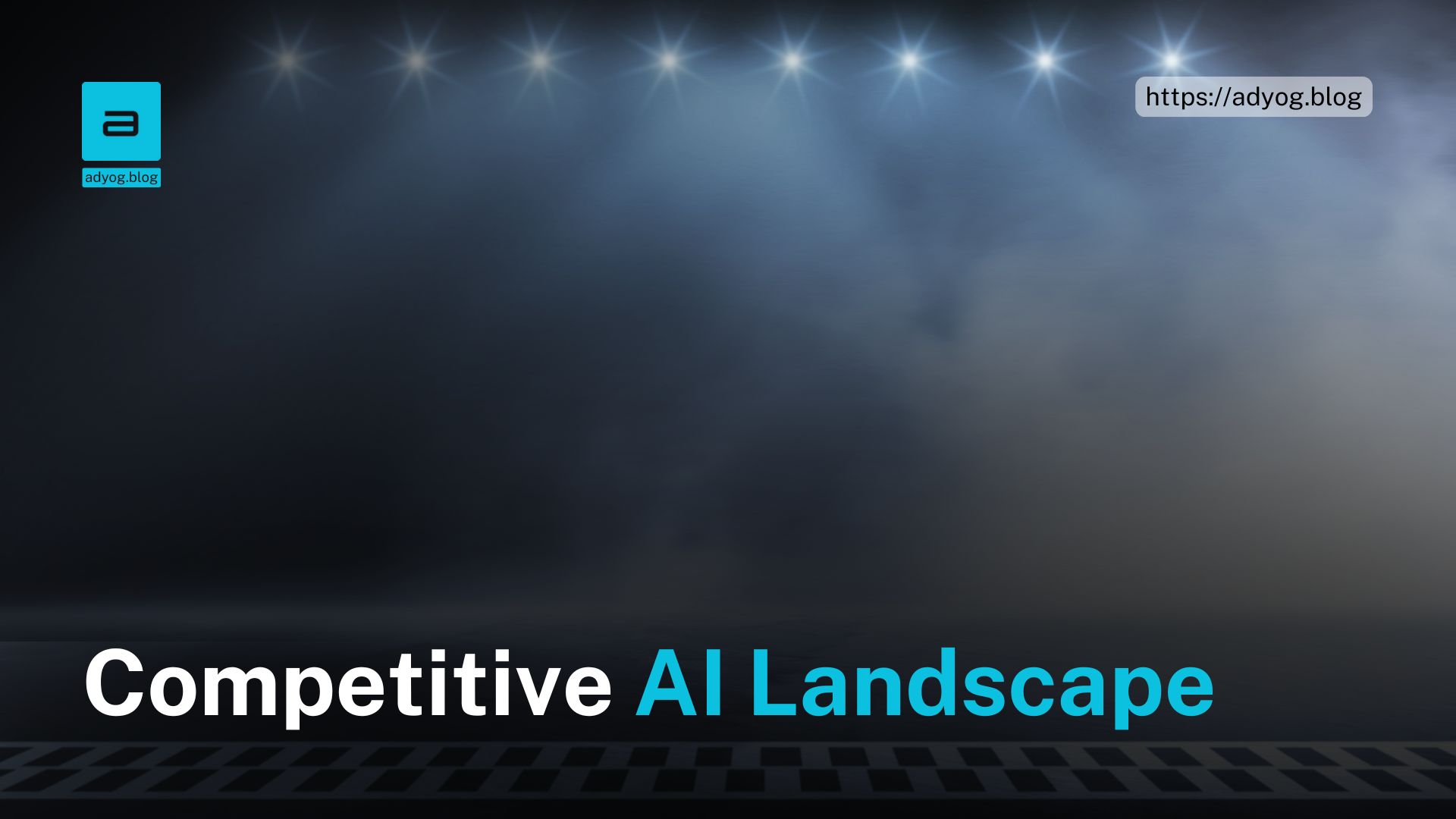The age of superintelligence is upon us, reshaping industries, economies, and societies at an unprecedented pace. Leading players like OpenAI, Microsoft, Google, Meta, Anthropic, and DeepMind are pushing the boundaries of innovation, fueling an AI arms race that blends collaboration and competition.
While AI promises to revolutionize fields like healthcare, education, and creativity, it also raises critical questions about job displacement, ethical considerations, and the role of governments in regulating this rapidly advancing field.
Historically, AI’s journey from academic curiosity to commercial juggernaut has been marked by groundbreaking collaborations between universities and corporations. Today, that spirit of partnership continues, albeit intertwined with intense rivalry, as tech giants vie for dominance in shaping humanity’s future.
OpenAI and Microsoft – Forging the Path to AGI
OpenAI’s 03 Models: Toward Artificial General Intelligence
OpenAI’s 03 models represent a significant leap in reasoning, problem-solving, and complex decision-making capabilities. These models aim to achieve general intelligence by solving advanced mathematical, scientific, and logical challenges.
Potential applications include:
- Business Intelligence: Automating decision-making in corporate environments.
- Healthcare: Diagnosing rare diseases through pattern recognition.
- Research: Solving problems previously considered beyond the scope of AI.
Risks and Challenges: With great power comes great responsibility. The potential misuse of such advanced models for misinformation or unethical purposes underscores the need for stringent safety protocols.
Microsoft’s Strategic Bet
As OpenAI’s primary partner, Microsoft has integrated OpenAI models into Azure, democratizing AI access. However, OpenAI’s growing independence and advances could influence Microsoft’s long-term AI strategy, potentially requiring a reevaluation of their partnership dynamics.
Google’s Gemini AI – The Next Multimodal Marvel
Unpacking Gemini’s Capabilities
Google’s Gemini AI represents a new era in multimodal AI. By processing text, images, and videos simultaneously, Gemini is set to revolutionize industries like:
- Healthcare: Analyzing imaging data alongside patient records to improve diagnostics.
- Content Creation: Generating interactive multimedia for marketing and education.
- Scientific Research: Visualizing complex data in novel ways.
Google’s Strategic Vision
Gemini underscores Google’s commitment to maintaining its AI leadership. Alongside advancements in robotics, quantum computing, and autonomous systems, Gemini fits seamlessly into Google’s vision of a highly interconnected AI ecosystem.
Anthropic’s Claude Models – Safety Meets Performance
Safety and Alignment: Anthropic’s Core Mission
Anthropic has carved a niche with its Claude models by prioritizing safety and alignment. Key innovations include:
- Bias Mitigation: Using diverse datasets to enhance algorithmic fairness.
- Transparency: Building interpretable models that explain their decisions to users.
- Ethical AI Practices: Implementing safeguards to prevent harmful outputs.
Claude’s Competitive Edge
Anthropic’s emphasis on ethical AI could set industry standards, especially as governments and regulators demand greater accountability in AI development.
DeepMind’s DeepSeek – The Future of Information Retrieval
DeepSeek’s Differentiation
DeepSeek combines deep reinforcement learning with natural language processing to revolutionize search and discovery. Applications include:
- Legal Research: Extracting insights from voluminous case laws.
- Academic Analysis: Summarizing findings across disciplines.
- Medical Diagnostics: Retrieving contextually relevant medical studies for faster decision-making.
DeepSeek’s unique ability to synthesize data across modalities positions it as a game-changer in the AI-driven search landscape.
Meta’s AI Ecosystem – Scaling Social Intelligence
Engaging the Masses
Meta’s AI ecosystem, reaching over 500 million active users, thrives on its ability to embed AI seamlessly into platforms like WhatsApp and Instagram. Features such as conversational AI and enhanced recommendations redefine social interactions and business communications.
However, Meta faces scrutiny over privacy and the risk of misinformation. Striking a balance between innovation and user trust will be key to sustaining its growth trajectory.
The Competitive AI Landscape – An Arms Race Unfolding
AI as a Catalyst for Progress
The convergence of innovation and rivalry among AI giants accelerates advancements in:
- Natural Language Understanding: More accurate and nuanced models.
- Multimodal Processing: Combining text, audio, and video analysis for diverse applications.
- Personalized Medicine: Tailoring treatments based on individual data.
Regulatory Challenges and Ethical Considerations
As competition intensifies, the role of governments and international bodies becomes crucial in:
- Setting Ethical Standards: Preventing misuse of AI technologies.
- Ensuring Data Privacy: Safeguarding sensitive user information.
- Promoting Transparency: Demanding accountability in AI decision-making.
Conclusion: Collaboration, Competition, and the Road Ahead
The AI revolution is a tale of collaboration intertwined with rivalry, where leading companies like OpenAI, Microsoft, Google, Meta, and Anthropic are redefining the boundaries of technology. While the competition drives innovation, it also calls for ethical responsibility, robust safety measures, and equitable access to AI’s transformative potential.
As the race for AI dominance unfolds, one thing is certain: the future of AI will shape not just industries but the very fabric of society.
Join the conversation on the evolving AI landscape. Stay informed about groundbreaking innovations, ethical challenges, and the exciting opportunities ahead. Together, let’s navigate the intersection of technology and humanity.





Leave a Reply